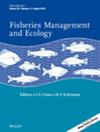Social-Ecological Dynamics of Sustainable Small-Scale Fisheries Management in the Sundarbans Mangrove Forest Region, Bangladesh
Abstract
We employed a social-ecological systems (SES) framework to investigate the interplay of social and ecological factors influencing the sustainable management of common pool resources, the Sundarbans mangrove forest region in Bangladesh as a case study. Through qualitative and quantitative analyses, we identified positive and negative correlations between dimensions of the SES. Four positive and two negative correlations between dimensions of social systems and ecological systems highlighted the interconnectedness of dimensions in the SES framework. Our study only considered spatial variation across the four SES dimensions, which revealed distinct management practices within the region. Our findings underscored the importance of tailored management strategies to address specific SES dimensions. Enhanced stakeholder participation and institutional frameworks could bolster governance systems and actor capacity, while interventions targeting ecosystem health and species populations may improve sustainable resource systems and resource unit capacity. Our findings provide insights for policymakers and practitioners who seek to promote the sustainability of small-scale fisheries within SES contexts.

 求助内容:
求助内容: 应助结果提醒方式:
应助结果提醒方式:


